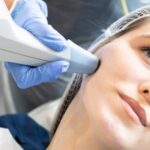- Feel Good
- 15th May 2020
- 901 Views
- 0
- 1 minutes
COVID-19 update: Are masks important? What role do they play and what do you need to know about them?
We’ve teamed up with qualified epidemiologist and public health specialist Elizabeth Lucy to bring you the latest updates and tops regarding the COVID-19 pandemic. This week? Are masks important?










Comments